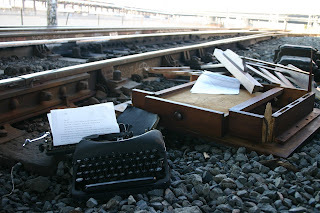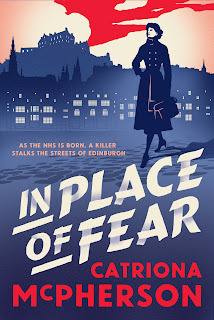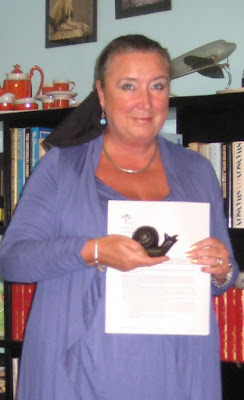Terry Shames's Blog: 7 Criminal Minds, page 86
May 13, 2022
Climbing the Unclimbable by Josh Stallings
This week’s question was about the publishing business, how it’s changed since your first release, where did we see it would be in the next ten years. Luckily writers smarter than me have spoken eloquently to this earlier in the week.

I’m going to share with you how the publishing industry effects my work and what I’ve done to survive and maybe even thrive.
New Writer: How do you write a novel?
Me: I don’t know. I can’t. It is an impossible task.
New Writer: No. I meant what software do you use?
M...
May 12, 2022
From Rubber Bands to Algorithms, by Catriona
How has the book industry changed since your first release, and polishing your best crystal ball, where do you see the book industry heading in the next ten years?

Next month in the US - details here
I think things are pretty much they way they were in 2001.
Just kidding.
For a start, I submitted my first book as a bale of paper, criss-crossed with rubber bands and lugged to the Post Office. I sent it out to agents I'd identified in that year's paperback WRITERS' AND ARTSITS' YEARBOOK, which I'd ...
May 11, 2022
Ch-ch-ch-ch-changes... by Cathy Ace
How has the book industry changed since your first release, and polishing your best crystal ball, where do you see the book industry heading in the next ten years?
Another question where the timing couldn’t be better. Why? I received the contract for my first published novel in the mail on May 11th 2011 – eleven years ago to the very day! An exceedingly happy anniversary. The book wasn’t published until March 2012, but eleven years ago today I felt good!!
May 9, 2022
The Times They Are A Changing
Q: How has the book industry changed since your first release, and polishing your best crystal ball, where do you see the book industry heading in the next ten years?
- from Susan
My first mystery novel was published in 2010, having been sold in 2008. What’s changed that I can see?
The huge rise in self-publishing means thousands more books are launched every year. Many of those books are very, very good, deserve readers and, I hope, find them. Others needed way more editing or critiquing befo...
May 8, 2022
How has the book industry changed since your first release, and polishing your best crystal ball, where do you see the book industry heading in the next ten years?
Listen.
I love getting my bi-annual 15% royalty checks because who wouldn’t love to line their pockets with a couple extra buckskins every six months? So, I’m not going to say anything here that could in the least be interpreted as disparaging to an industry that makes it rain (or at least lightly sprinkle) for me twice a year. And beside; I’m a relative newcomer to the publishing biz. Three-books do not make me some sort of wizened industry sage boorishly pontificating on publishing industry b...
May 6, 2022
Describe What You Do
Adding description to a story is an art. Too much, and readers skip over it. Too little, and the sense of place and mood aren’t adequately drawn. What techniques do you use, and please provide examples from your work.
Abir
Before I talk about description, I should mention what I believe is the cardinal rule of writing fiction, and that is the creation of the world of the story around your reader – what I call the bubble of unreality.
It’s a writer’s job to transport the reader from the real worl...
May 5, 2022
Paint Me a Picture from James W. Ziskin
Adding description to a story is an art. Too much, and readers skip over it. Too little, and the sense of place and mood aren’t adequately drawn. What techniques do you use, and please provide examples from your work.
For this week’s question, I’ve chosen a few examples from my Ellie Stone mysteries, and one from my upcoming thriller, Bombay Monson, to illustrate my thoughts on description. Readers of my books will have no doubt noticed that I often go to great pains in describing places and peop...
May 4, 2022
In the works
Adding description to a story is an art. Too much, and readers skip over it. Too little, and the sense of place and mood aren’t adequately drawn. What techniques do you use, and please provide examples from your work?
by Dietrich
For me, the process is more instinct than technique. The telling works in time with the pace, and the words fit into the moving scene that comes to life as I write. There are no rules or formula that I stick to. Instinct just guides the way.
When I’ve finished a first dra...
May 3, 2022
Terry here. This week’s topic is of particular interest ...
Terry here. This week’s topic is of particular interest to me: The art of description. Too much, and readers skip over it. Too little, and the sense of place and mood aren’t adequately drawn. It interests me because I find descriptions hard. I'm always thrilled when someone says they love my descriptions, because I have to work hard to get them right.
I can’t let anyone read my first draft, even in a critique group. If I do, readers keeps saying, “Where is all this happening?” I write my first...
May 1, 2022
Sinking into the Scene
Adding description to a story is an art. Too much, and readers skip over it. Too little, and the sense of place and mood aren’t adequately drawn. What techniques do you use, and please provide examples from your work.
Brenda Chapman
Writers are warned early on not to add too much description because readers tune out. This might not be as true for literary fiction as it is for crime fiction, but I'd wager even these authors need to be careful not to overdo.
Readers (myself included) love a moody, sc...
7 Criminal Minds
- Terry Shames's profile
- 273 followers




